Today’s readings
Prayer is that activity that people of God have at their disposal to remain in contact with God. It takes many forms: intercessory prayer, in which we pray for people or issues; adoration, in which we extol the greatness of God; confession, in which we note how, in comparison to God’s glory, we have fallen short; and thanksgiving, in which we remember the graces and mighty acts of God which have sustained us and blessed our lives. Prayer can change our lives and change our world, and today we need prayer seemingly more than ever.
So, based on today’s readings, I’d like to say three important things about prayer. First, prayer must always happen in the context of a relationship with God. Second, prayer must be approached with the long game in view, persistent and relentlessly hopeful. And finally I would like to answer the question that I get pretty often, and that is: “Why doesn’t God answer my prayers?” It’s a lot to cover, so please hang in there with me.
First, and this is really important: prayer must always happen in the context of a relationship with God. As I said a minute ago, prayer is an activity of the people of God, and to undertake prayer outside of that relationship will never be successful; indeed, it doesn’t even make sense. Let me illustrate with an apocryphal story: There was a woman who was not religious, didn’t worship, never prayed. But her life took several bad turns and she didn’t know what to do. Friends of hers found a lot of grace in prayer, so she figured it couldn’t hurt to try. She had a Bible on an upper shelf that she hadn’t opened in decades. But she got it down and dusted it off and said, “Okay God, if you’re there, I need to know it. Tell me what to do about my life right now.” She decided to open the Bible up, point to a passage, and hope it spoke to her. So that’s what she did. Opening the Bible, she pointed to a passage and read: “And Judas went out and hanged himself.” She thought that was frightening, so she decided to try again. This time she opened it up, pointed to a passage, and read: “Go, and do likewise.” She decided to try one more time, and on opening it up, she read: “Friend, do quickly what you must do.”
Now obviously, the woman was reading these passages out of context. Had she read the whole story around each of these quotes, she would have been clear that none of these brief sentences spoke to her situation. But more than that, she was praying without the context of a relationship with God. Prayer can be very effective in times of crisis. But a time of crisis is not the time to learn how to pray. It is our relationship with God as disciples of the Lord that makes sense of our praying and teaches us how to speak to God. Indeed, if Abraham didn’t have a relationship with God, his bargaining in the first reading today would have been utterly offensive. And if the man in Jesus’ parable in the Gospel today didn’t have a relationship with his neighbor, he would never have been able to get the man out of bed to give him some bread.
The second thing I want to say about prayer is that it has to be persistent, part of the long view of our faith. Jesus presents this concept in the parable he tells about prayer. Even if friendship does not get the neighbor what he wants, persistent knocking on the door will certainly help. Nothing illustrates this better, though, than the very astonishing story we have in that first reading. This reading has always intrigued me, ever since I can remember hearing it as a child. God intends to destroy the cities of Sodom and Gomorrah because of their pervasive wickedness. Abraham, newly in relationship with God, stands up for the innocent of Sodom, largely because that was where his nephew, Lot, had taken up residence. In what seems to be a case of cosmic “Let’s Make a Deal,” Abraham pleads with God to spare the city if just fifty innocent people could be found there. God agrees and Abraham persists. Eventually God agrees to spare the city if just ten righteous people could be found in the city of Sodom.
It is important, I think, to know that Abraham’s prayer does not really change his unchangeable God. Instead, God always intended to spare the city if there were just people in it. Sadly, ten righteous people could not be found, and Lot escapes with his wife and daughters by the skin of his teeth. Don’t read the rest of the story though, it gets really awful from there! But that God would actually have this conversation with Abraham is what captures our attention: Our God is not a distant potentate who has set the world in motion and then stepped back to observe events as they unfold. No, instead our God can be called “Abba, Father” and we can approach God as we would a loving parent.
So finally, that brings me to the question I get so often as a priest. “Why doesn’t God answer my prayers?” And I get it; I’ve been in that situation myself. This summer has been particularly bad: I have had to just slightly re-word one of the prayers of the faithful seemingly every week this summer, changing just the location of the violence and tragedy that we’ve seen. Why doesn’t God hear our prayers and put an end to all this foolishness? Well, there’s a lot to be said about how that works, but let’s just talk about what prayer really does for us.
I always say that praying persistently doesn’t necessarily mean that everything is going to come out the way we want it to. We often approach prayer with a vision of how we want things to turn out. What we have to remember is that, in prayer, everything is going to come out the way God intended it, which is so much better than our little plans. If we are people of prayer, if we pray persistently, we will be able to see the blessings in the midst of sorrow and to have confidence when everything seems to be falling apart. Sometimes, even when the circumstances don’t seem to change, the praying changes us, and makes us more open to the blessings God wants to give us in the midst of the pain.
Which makes us wonder, perhaps, how we are to deal with all the violence and discord in our society right now. If you’re like me, you’re almost afraid to turn on the news to hear where the tragedy is today. There’s almost a pervasive sadness that comes from experiencing so much of this all at once. But prayer is indeed the way we need to go with it. Because we are a people who have a relationship with God; we have the context of knowing that he wills the best for us and stands with us in good times and in bad. And we know prayer is the solution for the big picture. It’s not a magic wand that changes things immediately, but when we persist in prayer, it changes us and opens us up to God’s will which is infinitely greater than what we can see right now. God does answer our prayers. He answers them with love that puts us where we need to be in any given moment. And he answers our prayers with his abiding presence that brings light to every darkness that we encounter.
The psalmist today says, “Lord, on the day I called for help, you answered me.” God intends the very best for us, we may be certain of that. And if we are people of persistent prayer, then we will indeed see blessing all around us. My prayer today is that we would all be persistent in prayer, that we would become people of prayer, and that we would never, ever, ever lose heart.

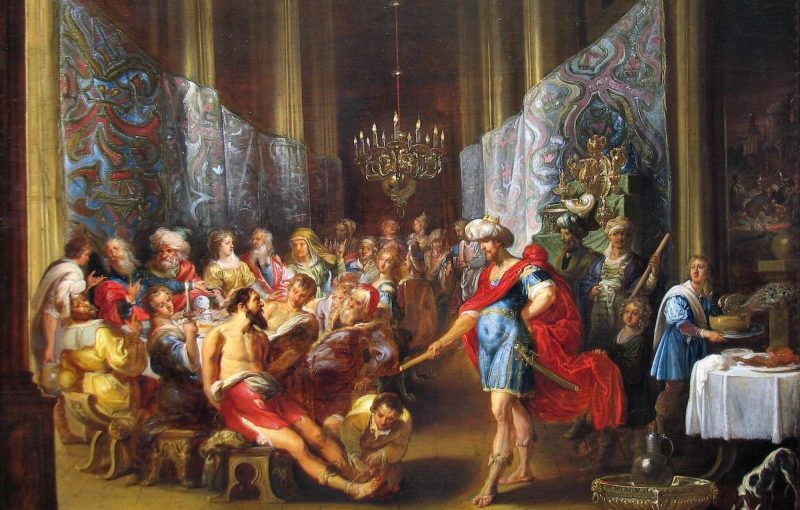


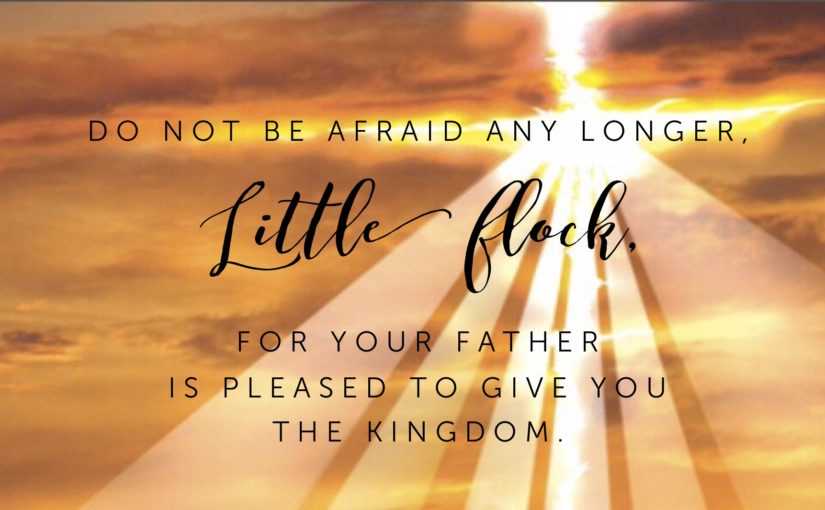
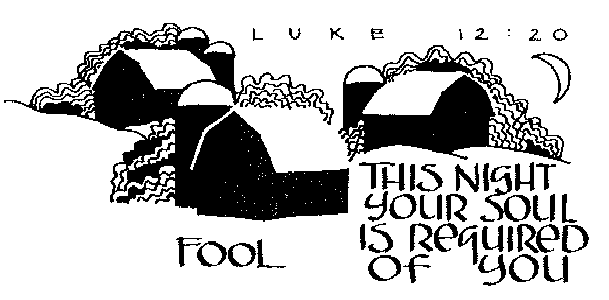

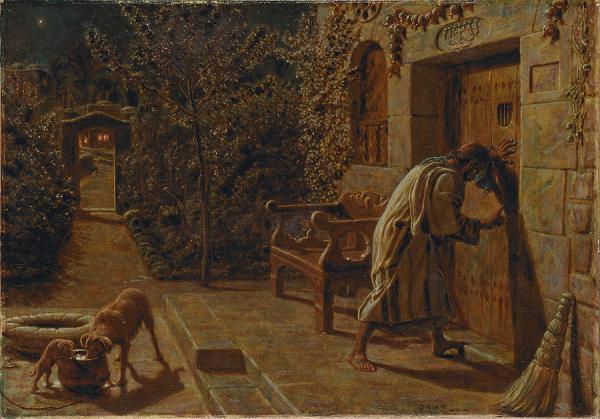
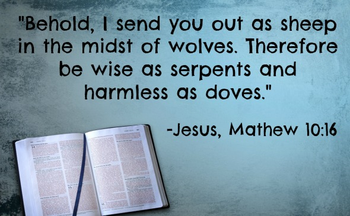
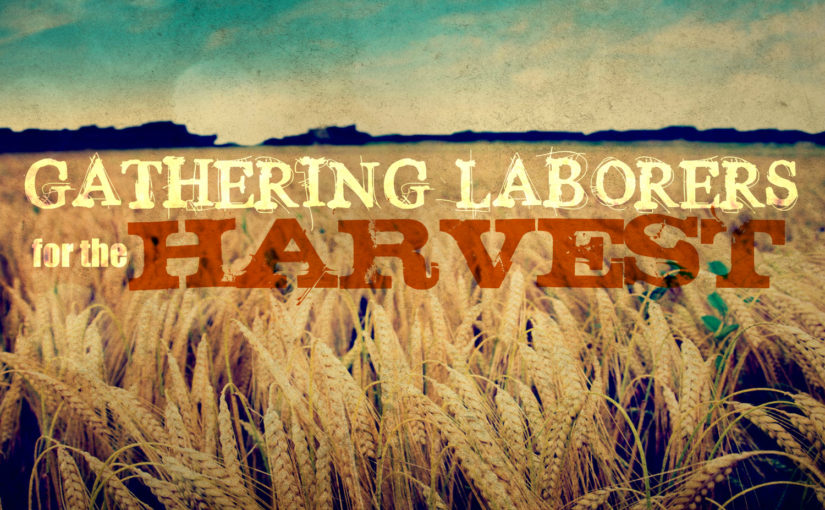
You must be logged in to post a comment.